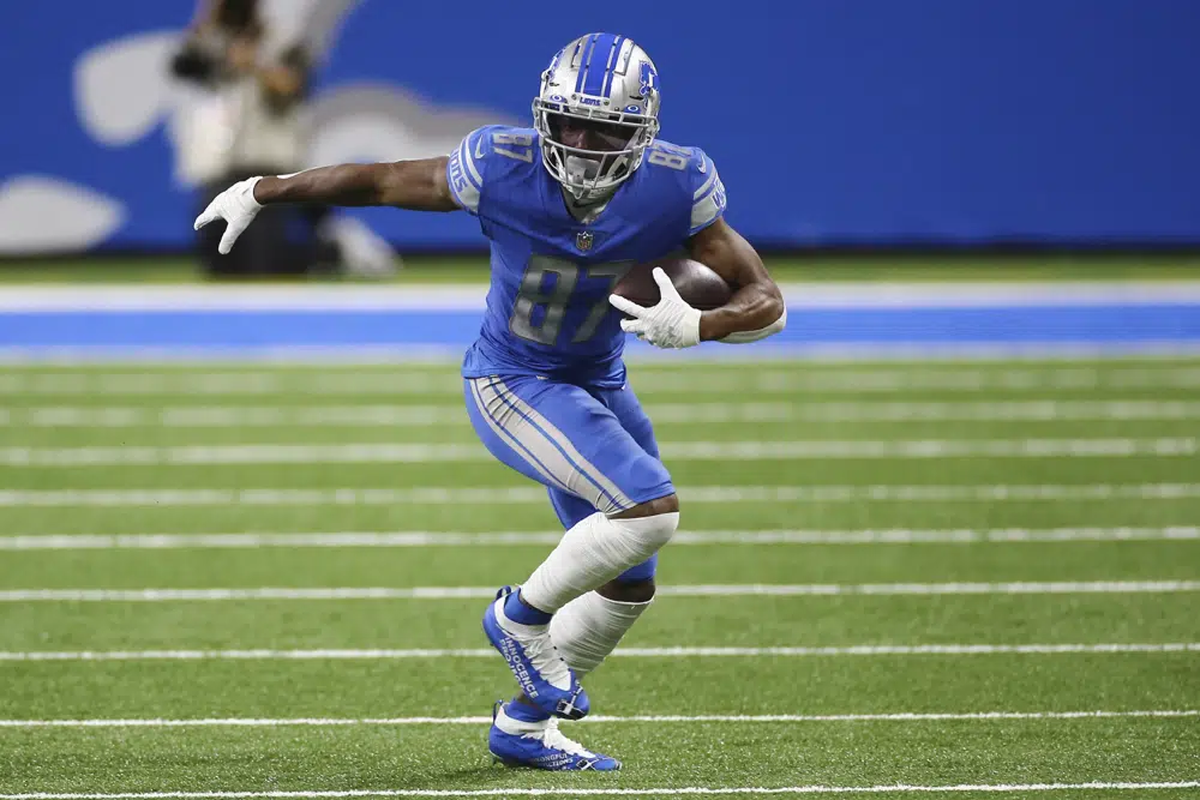By Rob Maaddi
NFL players aren’t permitted to bet on football despite the league embracing gambling and capitalizing on a multibillion-dollar industry through partnerships with casinos and sportsbooks.
That’s one policy that can never change because it would destroy the sport’s credibility. Everyone knows the rules. It’s part of mandatory annual education and training sessions for rookies and all players, staff and officials. It’s also included in player manuals, and there are signs in every locker room reminding players and staff that no personnel may bet on NFL games.
“The NFL has always maintained a robust integrity and compliance program underpinned by policy, education, monitoring, and enforcement,” league spokesman Alex Riethmiller told The Associated Press in an email Monday. “We regularly assess and continue to enhance our programs to ensure these components remain well-suited to protect the integrity of our game. We provide gambling policy education/training to all players, coaches and staff at the 32 clubs as well as NFL league personnel and other stakeholders (e.g., vendors). In total, we educate more than 17,000 people a year on our gambling policy.”
Still, several players in the past year tried to get away with betting on football games only to end up with indefinite suspensions.
FILE – Detroit Lions defensive back C.J. Moore (38), on special teams, reacts after running out of bounds on a fake punt during the second half of an NFL football game against the Los Angeles Rams Sunday, Oct. 24, 2021, in Inglewood, Calif. The NFL suspended five players for violating the league’s gambling policy on Friday, April 21, 2023. Detroit Lions wide receiver Quintez Cephus and safety C.J. Moore and Washington Commanders defensive end Shaka Toney were suspended indefinitely, while Lions wide receivers Stanley Berryhill and Jameson Williams have been suspended six games. (AP Photo/Marcio Jose Sanchez, File)
NFL Commissioner Roger Goodell has emphasized protecting the integrity of the game while the league and its owners have been cashing in since the U.S. Supreme Court overturned the Professional and Amateur Sports Protection Act (PASPA) in 2018, setting the stage for legalized sports betting to spread outside Nevada.
It may seem hypocritical on the surface, especially because teams are now permitted to have physical sportsbooks operate on game days starting this season. The Washington Commanders opened the first in-stadium sportsbook in January, the Arizona Cardinals and the New York Giants and Jets have sportsbooks outside their venues. All NFL employees are prohibited from entering or using any sportsbook during the season.
FILE – Washington defensive end Shaka Toney (58) walks off the field after an NFL football game against the New York Giants, Sunday, Jan. 9, 2022, in East Rutherford, N.J. (AP Photo/Adam Hunger, File)
But the NFLPA agreed to it in the 2020 collective bargaining agreement because more money for owners means more for the players. It’s also impossible to argue that anyone should be allowed to bet on the sport they play.
Since the NFL and other leagues changed their stance on sports betting and turned the once-forbidden vice into another revenue source, gambling incidents are on the rise. It seemed inevitable considering the influx of betting advertisements and easy access to gambling on smartphone apps. But availability is no excuse.
Two Lions players and one from the Commanders were suspended for at least one season last week for betting on football games. Former Falcons wide receiver Calvin Ridley, now with the Jaguars, was recently reinstated following his one-year suspension. Two other players on the Lions, including 2022 first-round pick Jameson Williams, must sit out six games because they bet on non-football games while on team property.
FILE – Washington Commanders defensive end Shaka Toney (58) runs during an NFL football game against the Philadelphia Eagles, Sunday, Sept. 25, 2022 in Landover, Md. (AP Photo/Daniel Kucin Jr., File)
Players are allowed to gamble on non-football games away from team premises. Coaches and league employees can’t do that. New York Jets wide receivers coach Miles Austin, a former player, found out the hard way. In December, he was suspended for at least one season for gambling on non-football games.
“The NFL uses a variety of tools to monitor for violations of the gambling policy. These include internal measures, along with resources and services provided by our partners, to be sure we have the most comprehensive information possible,” Riethmiller said. “The reality is, these infractions show the various measures we have in place to protect the integrity of our game are in fact working. We continue to regularly assess and enhance our compliance policy and education and training programs to be sure we are doing everything possible to be aware of possible violations and ideally, prevent them from ever occurring.”
Gambling is no longer a taboo topic in sports because of greed. Zero tolerance for betting on a sport you play is something else. ___

